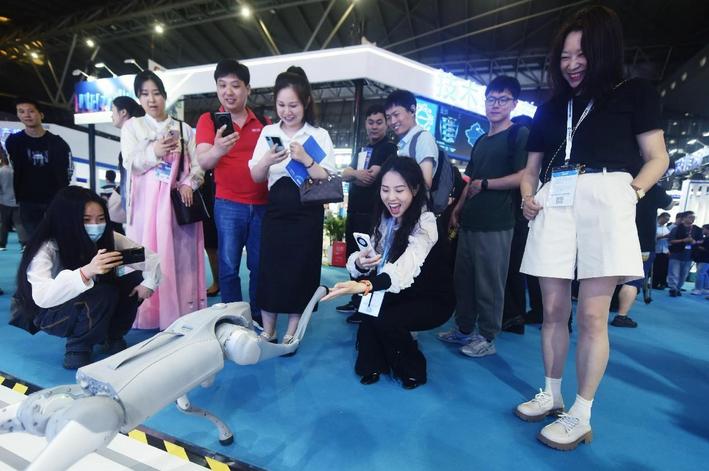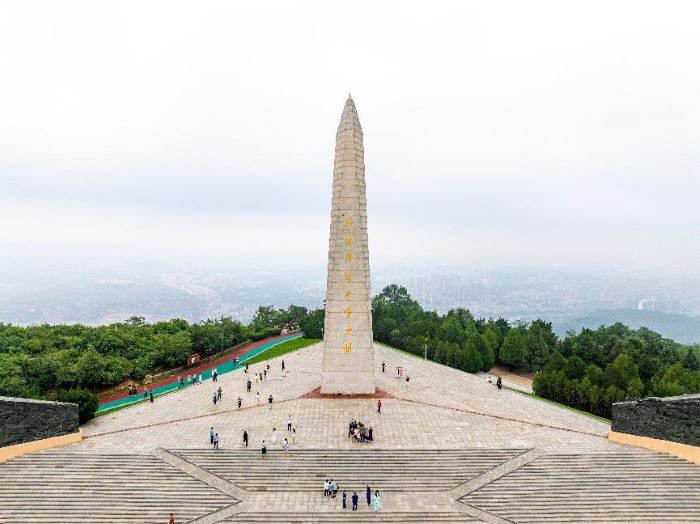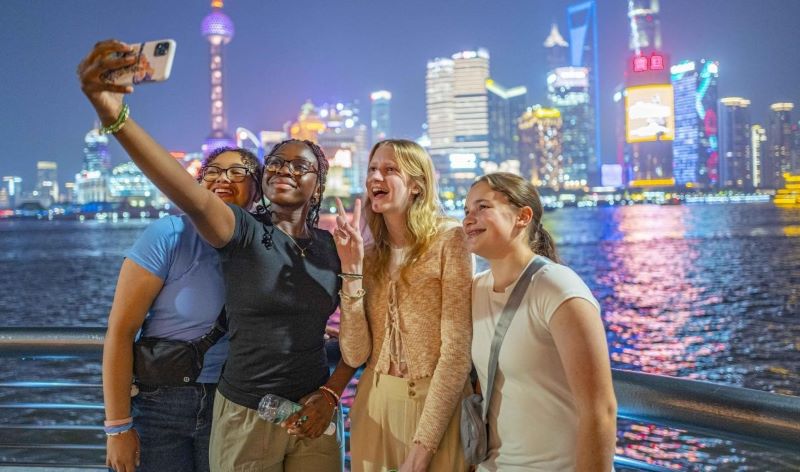Hangzhou fosters business-friendly environment to unleash innovation potential

Agency : From humanoid robots to brain-computer interface devices and large AI models, a wave of cutting-edge technological innovations from Hangzhou, east China's Zhejiang province, has been making headlines this year. Behind this surge in sci-tech breakthroughs lies a key driver: a robust, innovation-friendly business environment.
"Humanoid robots can replace nurses during ward rounds and monitor patients' respiration and heart rate - all enabled by a chip embedded with the right algorithms," said Wang Chao, CEO of Megaway Technology, a tech firm based in Hangzhou.
The company relocated to Hangzhou High-tech Zone (Binjiang) in 2023, settling in the local AIGC (Artificial Intelligence Generated Content) Industrial Innovation Center. "The industrial chains prioritized by Binjiang district are closely aligned with our development strategy," Wang explained.
Hangzhou Qianzhen Digital Technology is another company drawn to the district. "There are many leading AI companies here. The innovation center often invites corporate executives to share insights on industry trends and policy updates," said Wang Jinping, founder of the company. "These AI firms also provide our company with abundant resources and potential clients."
For a new industry to take root and flourish, it must rest on a solid foundation. According to Gao Chong, deputy head of Binjiang district, Hangzhou has been designated as a pilot zone for next-generation AI innovation and application. Binjiang, at the core of this initiative, began cultivating its digital economy as early as 2003. Today, the district's high-end software and AI industrial chain contributes 40 percent of the city's total revenue in this sector.
"Many organizations are reaching out to us for collaboration," said Wang You, associate professor at Zhejiang University's College of Control Science and Engineering and founder of tech firm Rotunbot.
A video of police officers patrolling the streets with a large black, ball-shaped robot in Wenzhou, Zhejiang, recently went viral online. The amphibious robot, capable of coordinating movement with other units, was developed by Wang and his team at a robotics innovation base in Hangzhou's Xihu district. The base, co-established with Zhejiang University's College of Control Science and Engineering, houses 12 innovation workshops, most of which are led by university faculty.
"I enjoy walking around the base to see what others are tinkering with," Wang said. "The laser radars used in our robot came from a bionic leg robotics lab just down the hall."
Zooming out to the broader Xihu district, there are four innovation ecosystems centered on Zhejiang University. Each ecosystem revolves around academic institutions, with Xihu authorities actively promoting inter-cluster collaboration, enabling the sharing of resources and the amplification of innovation capacity.
Hangzhou has also built an extensive innovation platform matrix comprising one national laboratory, two national scientific research facilities, 33 national key laboratories, and seven provincial-level labs - together fostering a dynamic environment that supports technological research and commercialization.
RoboCT, a company based in the Future Science and Technology City in Yuhang district, Hangzhou, specializes in developing exoskeleton robots that help individuals with disabilities stand and walk again through rehabilitation.
In 2021, just as the company was preparing for mass production, it faced a major challenge: finding a new manufacturing space. Co-founder Zhang Jiyu reported the issue to the management committee of the Future Science and Technology City and the local neighborhood committee. The next day, a government representative arrived with a list of available factory locations - two full pages of options. Zhang was deeply impressed.
When Hangzhou hosted the 4th Asian Para Games in 2023, Zhang and his team saw an opportunity to showcase their products and submitted a request to exhibit at the Games Village. "We didn't expect much. We just thought we'd give it a shot," Zhang recalled. To their surprise, the application was approved.
"Our exoskeleton robots were successfully exhibited at the 4th Asian Para Games Village. After international athletes tried them and shared their experiences online, the products quickly went viral overseas," Zhang said. Since then, the company has expanded into international markets, with exports now reaching over 30 countries and regions.
To provide responsive and targeted support, Hangzhou has rolled out a range of initiatives, including a "chain chief system" with dedicated task forces, tailored policies for key enterprises, and a "sci-tech envoy program" to help companies overcome technical challenges.
Built on a strong digital economy foundation, driven by a thriving innovation ecosystem, and supported by proactive public services, Hangzhou continues to improve its business environment, releasing new momentum for innovation and entrepreneurship.
-By Dou Hanyang, People's Daily














प्रतिकृया दिनुहोस